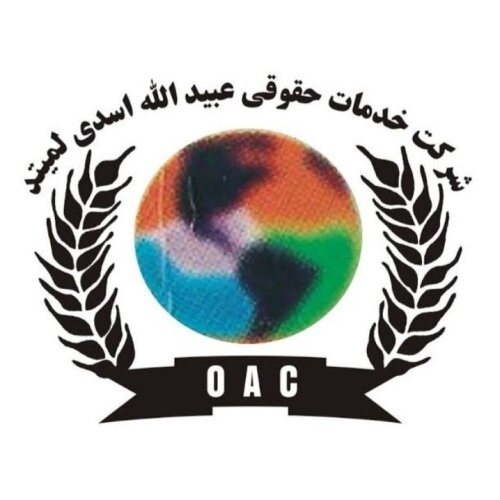Best International Trade Law Lawyers in Kabul
Share your needs with us, get contacted by law firms.
Free. Takes 2 min.
List of the best lawyers in Kabul, Afghanistan
About International Trade Law in Kabul, Afghanistan
International Trade Law in Kabul, Afghanistan, centers on the legal framework that governs trade between Afghanistan and other countries. This area of law encompasses various aspects such as import/export regulations, tariffs, trade agreements, and compliance with international standards. Afghanistan has been actively working on developing its trade policies and legal structures to align with global trade practices, aiming to facilitate smooth cross-border trade and promote economic growth. As a country with a strategic location, Afghanistan plays a crucial role in regional trade, making the understanding and application of International Trade Law vital.
Why You May Need a Lawyer
Engaging with International Trade Law can be complex, and there are several situations where legal assistance might be required:
- Import/Export Operations: Navigating the legal requirements and obtaining necessary licenses for engaging in import or export activities.
- Dispute Resolution: Resolving disputes arising from trade agreements or transactions.
- Compliance Issues: Ensuring compliance with local and international trade regulations, including anti-dumping and countervailing measures.
- Contract Negotiations: Assisting in drafting and negotiating trade agreements with foreign parties.
- Customs Issues: Handling legal matters related to customs valuation, classification, and clearance.
Local Laws Overview
Key aspects of local laws influencing International Trade Law in Kabul include:
- Customs Law: Governs the duties, taxes, and procedures applicable to goods entering and exiting Afghanistan.
- Commercial Contracts Law: Provides the legal framework for contractual relationships in trade transactions.
- Investment Law: Outlines the guidelines for foreign investments and protection of investors' rights in Afghanistan.
- Trade Remedies Regulations: Regulations that address anti-dumping, subsidies, and safeguard measures.
- Intellectual Property Law: Protects trademarks, patents, and other intellectual property rights in the trade context.
Frequently Asked Questions
What is International Trade Law?
International Trade Law involves the rules and customs governing trade between countries, covering aspects such as trade agreements, tariffs, and global commerce regulations.
Do I need a license to import/export goods in Kabul?
Yes, you typically need specific licenses and permits to legally import or export goods, which can be assisted by legal professionals familiar with trade regulations.
What should I do if I encounter a trade-related dispute?
Engaging a lawyer experienced in International Trade Law is advisable to explore negotiation and arbitration options and ensure your interests are protected.
What are the penalties for non-compliance with trade laws?
Penalties can range from fines to legal action, impacting your business operations, and violating entities may face restrictions or bans.
How can I ensure compliance with international trade standards?
Regularly consult legal experts, stay informed about changing laws, and implement compliance programs within your organization.
Are there special regulations for specific goods or industries?
Certain items like pharmaceuticals, weapons, and cultural artifacts may have additional export/import restrictions and regulatory oversight.
How can I protect my intellectual property in international trade?
Consider registering trademarks and patents both locally and in trading partner countries, and seek legal advice on IP protections and enforcement.
What international trade agreements affect Afghanistan?
Afghanistan is a member of several trade agreements, including the South Asian Free Trade Area (SAFTA), which influences trade policies and tariffs.
What role do tariffs play in international trade?
Tariffs are taxes on imports or exports that can affect trade dynamics by influencing product prices and competition.
Can I negotiate international contracts in Kabul?
Yes, with the help of legal professionals, businesses can negotiate and draft international contracts, ensuring alignment with both local and foreign laws.
Additional Resources
For further assistance with International Trade Law, consider reaching out to the following resources:
- Ministry of Commerce and Industry (MoCI): The primary governmental body overseeing trade activities in Afghanistan.
- Afghanistan Customs Department: Provides guidance on customs procedures and policies.
- Chambers of Commerce: Offer support and information to businesses engaged in international trade.
- Legal Associations: Such as the Afghan Bar Association, can recommend experienced lawyers specializing in trade law.
Next Steps
If you need legal assistance in International Trade Law, follow these steps:
- Research: Educate yourself on the basics of your trade issue to facilitate informed discussions with legal professionals.
- Consult: Reach out to lawyers or legal firms in Kabul with expertise in International Trade Law for advice and representation.
- Documentation: Gather and organize all relevant documents, such as contracts, permits, and correspondence, to aid in legal analysis.
- Legal Representation: Engage a lawyer to represent your case or assist with compliance, contract negotiation, or dispute resolution.
- Monitor: Stay up-to-date on changes in trade laws and maintain regular communication with legal advisors to proactively manage trade operations.
Lawzana helps you find the best lawyers and law firms in Kabul through a curated and pre-screened list of qualified legal professionals. Our platform offers rankings and detailed profiles of attorneys and law firms, allowing you to compare based on practice areas, including International Trade Law, experience, and client feedback.
Each profile includes a description of the firm's areas of practice, client reviews, team members and partners, year of establishment, spoken languages, office locations, contact information, social media presence, and any published articles or resources. Most firms on our platform speak English and are experienced in both local and international legal matters.
Get a quote from top-rated law firms in Kabul, Afghanistan — quickly, securely, and without unnecessary hassle.
Disclaimer:
The information provided on this page is for general informational purposes only and does not constitute legal advice. While we strive to ensure the accuracy and relevance of the content, legal information may change over time, and interpretations of the law can vary. You should always consult with a qualified legal professional for advice specific to your situation.
We disclaim all liability for actions taken or not taken based on the content of this page. If you believe any information is incorrect or outdated, please contact us, and we will review and update it where appropriate.













